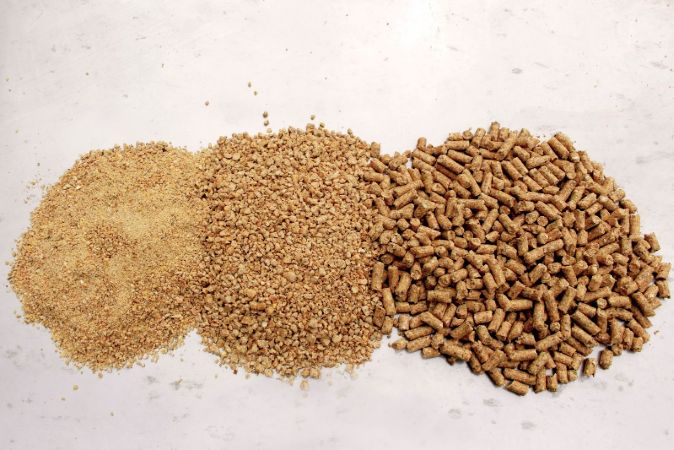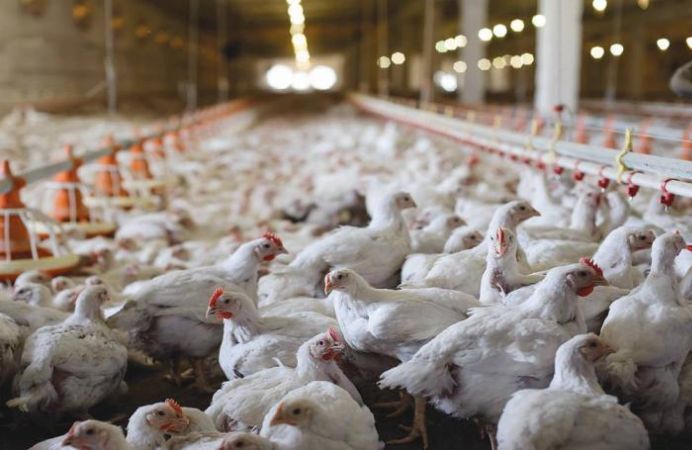
Health Care and Types of Poultry Feeds Chicken Needs
Wanting to start a poultry business? This is how you do it.
Poultry farming is a profitable business with minimal investment. Basically, poultry farming is a way of raising birds, especially chicken, to sell meat and eggs in the market. Chickens that are raised for eggs are called layer or laying hen. And chickens that are raised for meat are broilers.
If you want to start a poultry business, you will definitely have these two questions.
- What types of poultry feeds layer and broiler needs?
- How to take care of layer and broiler chicken?
So, it would be best if you decided whether you want to raise chicken for meat or eggs before finalizing what types of poultry feeds they need.
When there are so many types of poultry feeds available in the market, you need to ensure that you’re providing quality feed. And just giving chicken quality feed is not enough. You also need to take proper care of them.
Talking about quality feed, Jio Feed provides all types of feeds to both broiler and layer from the day chicken hatches.
Raising Broiler or Layer?
Raising broiler or layer totally depend on you. You need to decide on this. Do proper research to understand which business will give you more research.
If you want to profit from the local market, know what local prefer. Talk to locals. If they prefer egg over chicken meat, then it would be better to raise the layer. If not, then you can raise the broiler. You need to raise chicken depending on the market you target.
If you cannot decide which type of chicken to raise, you can talk to an expert. You can consult to a person who is already in the poultry business.
Types of Poultry Feeds for broiler
Once you have decided you want to raise your chicken for meat, then you need to feed and take care of them accordingly. So, if you are doing poultry farming for meat production, your concern should be their weight and health.
As broilers are raised for meat, you should consider various factors to help them gain healthy weight. Quality consumption of feed in different stages of chicken is a major factor that should not be neglected. And when it comes to quality, Jio feed is what you should choose because we provide all types of poultry feeds enriched in nutrients.
1. Jio Feed B0: Broiler per-starter or B0 is the feed that should be provided to chicks in the first week after they hatch. It’s an organic composition that helps chicks to grow healthy.
2. Jio Feed B1: Broiler starter or B1 is a unique mixture of ingredients to strengthen the immune system and maintain the chicken’s health.
3. Jio Feed B2: Broiler growth or B2 is the granular feed that accelerates broiler chicken growth and improves feed conversion.
4. Jio Feed B3: Broiler finisher or B3 is a high energy feed that should be provided to chicken from the 7th week and continued until they reach market weight.
The ingredient that Jio Feed uses is formulated under specialists’ scrutiny, and nutritive values are tested in the laboratory. So without worrying about the feed quality, you can provide Jio Feed to your chickens.
How to take proper care of Broiler Chicken?
Raising a meat chicken has a special requirement. If you don’t have experience in raising a broiler, here are tips that you need to know to keep your chicken healthy.
- Broiler chickens need dry, clean space and large space to accommodate a fast-growing body.
- To keep brooding temperature constant, you should install a 12 to 18 inches draft barrier to block cold air.
- Chickens may die when they are kept in cold temperatures, so make sure to maintain the temperature of the broilers’ room.
- You can remove the draft barrier depending upon the weather.
- Fill the floor of the broilers’ room with poultry litter.
- Remove clumped little daily and stir the litter so that it can absorb moisture better and last longer.
- If you are raising chicks, avoid using sawdust and shredded paper because they may consume it.
- Keep the brooder house warm. The newly hatched chicken will need 95 degrees F temperature for the first week.
- After the first weeks, you can decrease the temperature by 5 degrees every week.
- Provide sufficient water to chickens.
- Chickens in brooder house should have 2 inches of gap between them on their first two weeks after they hatch. After two weeks, chickens will need four inches of gap between them.
Types of Poultry Feeds for layers
Instead of raising chicken for meat, you decided to raise layers. So the process of raising chicken for eggs is completely different from raising a broiler. Poultry feeds that layers need and how they need to be raised are different from broiler chicken.
Layers’ lifespan is from five to seven years, and with age, production may gradually decrease every year. When the layer is 18 weeks, it will start producing eggs. During peak season, you should provide layer feeds for better production. If you are feeding layer with high-quality feed, then you can expect 250 eggs in the first year of lay.
Jio’s layer feed is especially for chickens that are raised for eggs. As layers are for eggs, the nutrient requirement is different from that of the broiler. Also, the quantity of feed and nutrient requirements varies from the day they hatch until they mature.
1. Jio Feed L1: Layer 1 or L1 should be provided from birth to 8 weeks
2. Jio Feed L2: Layer 2 or L2 should be provided to the growing layer from 9 weeks to 17 weeks
3. Jio Feed L3: Layer 3 or L3 should be continually provided to the laying hen after 17 weeks.
How to take care of laying hen or layer?
Getting an egg from the backyard is not that easy. There are many tasks that you need to accomplish. Below are tips that you need to know before you start raising laying hen.
- Other than Jio’s feed, you can also provide them occasionally with fresh fruit, green vegetables, and other healthy meals.
- Frequently sanitize nest boxes for comfortable bedding.
- Don’t restrict your chicken from roaming in your property because happy chicken lay more eggs.
- Inspect the health of the chicken regularly. Examine their combs, wattles, feet, and wings.
- Protect your hens from raccoons, cats, and other animals.
- Provide sufficient water so that they stay healthy and productive.
- Parasites prey on chickens. Regularly inspect on chickens at night when mites become active.
Conclusion
Whether you are investing in broiler or layers, you need to be sensitive regarding their health. It’s essential to raise chicken healthy if you want to sustain and grow in the poultry industry. Though many factors can impact the health of chickens, quality feed matters the most. So, make sure your broiler or layer is consuming high-quality feed.

